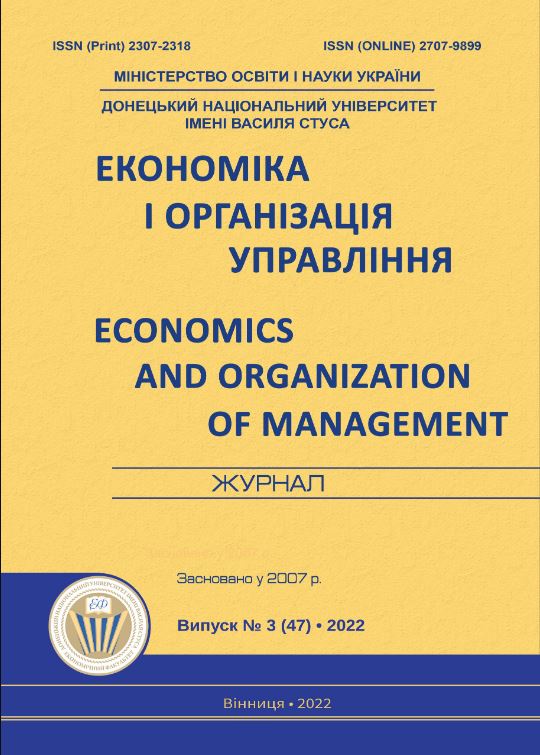Conceptual provisions of the paradigm regulation of behavioral models of labor market actors
DOI:
https://doi.org/10.31558/2307-2318.2022.3.2Keywords:
behavioral models; labor market; conceptual positions; methodology; human models; economic behavior; paradigmAbstract
In the article the classification of human models by economic schools is carried out. Approaches to the study of economic behavior are systematized, and their features are determined. Scientific approaches to the definition of «economic behavior» are generalized. The conceptual provisions of the paradigm of regulation of behavioral models of labor market actors are developed. Within the framework of the proposed direction, the methodological apparatus for identifying behavioral models of labor market actors is proposed, their classification is carried out and their essence is determined, typical features of a modern labor market actors in the new economy are distinguished, which allows to develop directions for regulating the behavioral models of labor market actors in the context of the new economy, which will facilitate the transition from paternalistic state policy to a state policy of «gentle nudge» based on the use of behavioral economics tools. This direction of scientific research will allow to form productive models of behavior of labor market actors and increase their motivation by ensuring «subject-subject» relations in order to achieve maximum socio-economic benefits for labor market actors and public welfare.
References
Безгін К. С., Ушкальов В. В. Поведінкова економіка: епістемічний поворот у трактуванні раціональності. Економіка України. 2019. №7-8 (692-693). С. 3-15.
Беккер Г. С. Экономический анализ и человеческое поведение. Thesis. Теория и история экономических и социальных институтов и систем. 1993. Т. 1, Вып. 1. С. 24-38.
Заславская Т. Поведение массовых общественных групп как фактор трансформации общества. Мониторинг общественного мнения: экономические и социальные перемены. 2000. №6. С. 13-19.
Tversky A., Kahneman D. Rational Choice and the Framing of Decisions. The Journal of Business. 1986. Vol. 59, № 4. Part 2. P. 251–278.
Пікетті Т. Капітал у XXI столітті. К.: Наш Формат, 2016. 696 с.
Сорокин П. Человек. Цивилизация. Общество. М., 1992.
Smith A. An enquiry into the nature and causes of the wealth of nations. Ware, Hertfordshire, United Kingdom, 2012. 974 p.
Jevons W. S. Theory of Political Economy. L., 1871.
Menger K. Austrian Marginalism and Mathematical Economics. Hicks and Weber, eds., Carl Menger and the Austrian School of Economics, 1973.
Marshall A. Principles of Economics. London Macmillan, 1965.
Роббинс Л. Предмет экономической науки. THESIS. 1993. Т. 1. Вып. 1. С. 10–23.
Keynes J. M. The General Theory of Employment, Interest and Money. The Collected Writings of John Maynard Keynes. Cambridge University Press, 2012. Vol. VII. 428 p.
Петрушина Т. О. Социально-экономическое поведение населения Украины в условиях институциональных перемен. К.: Институт социологии НАН Украины, 2008. 544 с.
Суименко Е. И. Homo economicus современной Украины: поведенческий аспект. Киев: Институт социологии НАН Украины. 2004. 244 с.
Simon H. A. A Behavioral Model of Rational Choice. The Quarterly Journal of Economics. 1955. Vol. 69 (1). Р. 99–118.
Thaler R. H. Behavioral economics: Past, present, and future. Chicago, 2016. 22 p.

